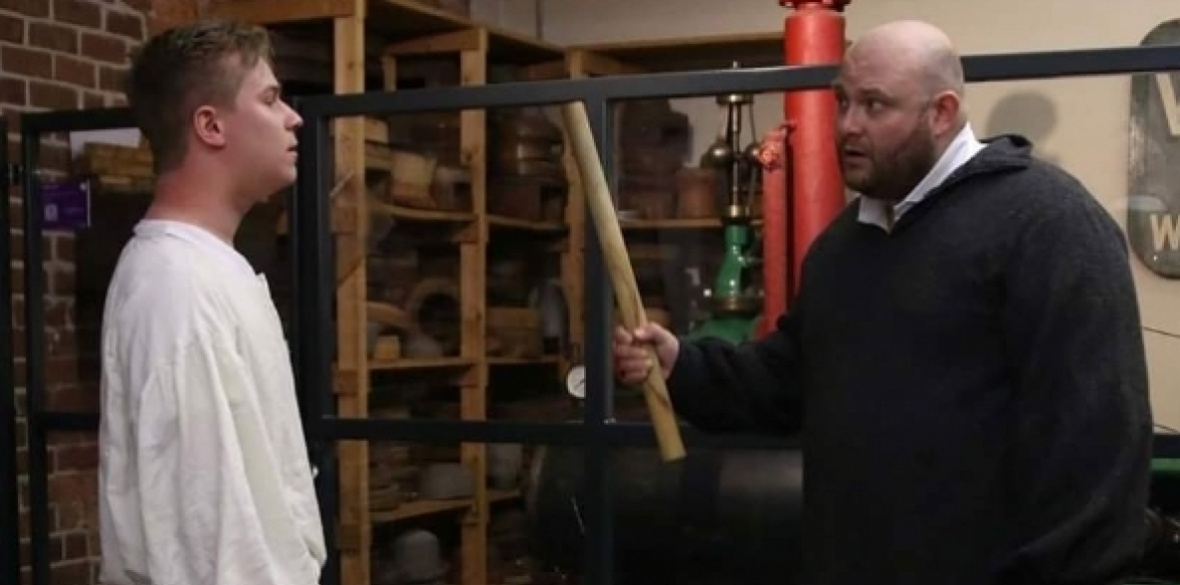This is the last article you can read this month
You can read more article this month
You can read more articles this month
Sorry your limit is up for this month
Reset on:
Please help support the Morning Star by subscribing here
1842 was a year of great hardship for workers across the north-west of England.
High bread prices, reduced wages and the dismissal of calls for universal male suffrage by Chartists led to strikes and disturbances in the summer.
In this new play, writer Rob Johnston has chosen events in Preston to tell the story of workers and mill owners as the political situation reaches boiling point, with Jake Talbot and Christopher Ward playing both the mill owners and the weavers.
Set on the night before a planned mass protest by striking workers, two weavers meet and discuss their lives and what could happen the next day.
It’s 23 years after the Peterloo Massacre and the older weaver (Ward) counsels the young man over using violence and his hopes for a better future.
But the illiterate George (Talbot) feels he has nothing to lose. He believes that the soldiers are just workers wearing uniforms and thus pose no threat.
Both actors then assume the roles of the mill owners Horrocks and Denholm. The former, the mayor of Preston, wants to use force to get the workers back at the mills and rejects Denholm’s liberal ideas.
Challenged about using the army to attack the workers, Horrocks proclaims that he has no scruples about reading the Riot Act.
The scene is set. On August 20 1842, the Riot Act is read in Preston. Four men are killed and many injured in what is the only occasion during that year that the military is used to attack workers with bullets.
Johnston’s play is thus a welcome relief from the constant imagery of passive workers that has been flogged to death around the Peterloo commemorations. Particularly striking is the referencing of women and children hitting back at the police and army with stones.
Riot Act, wordy and worthy, stands out from the Peter-lite fare that has been served up so far to mark the bicentenary of the Manchester massacre two centuries ago.
We need more plays like this that recover the revolutionary nature of the 1840s and the workers who made that leap forward in working-class history.










